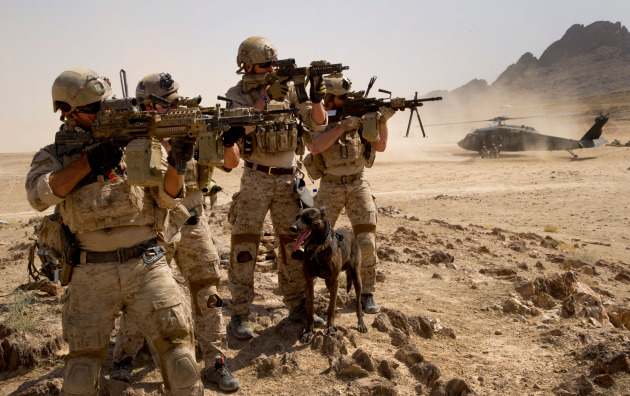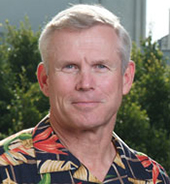Ok, what’s the “Fifth Factor?”
That is the question I frequently get when I tell people I named my company “Fifth Factor Leadership.” This simple question seems to deserve a simple answer, but I don’t have a simple answer, except my standard wise-guy response: It comes right after the fourth factor.
Which of course leads to the next simple question: OK, what are the first four factors of leadership? To which I answer: It depends on who you ask.
In my own work, I use and refer to a number of different four factor lists: The four leadership roles I learned from the National Outdoor Leadership School: self, peer, designated, and subordinate leadership. Or the four descriptors I offer as characteristics of elite teams: Purpose, Trust, Focus, Camaraderie (PTFC). I talk about Commando Leadership in terms of four components: Solidify the team, Energize the team, Authentic leadership, Live the mission (SEAL – cute eh?) Chris Lowney’s book Heroic Leadership suggests four qualities of great leaders: self-awareness, heroism, ingenuity, and compassion/love. Dr Al Pierce, my first military ethics mentor, wrote of Admiral Stockdale’s four components of moral leadership: a noble cause, proactive pursuit of that cause, self-sacrifice for the cause, and willingness to ask/direct others to make similar sacrifices. My friend, and leadership guru George Reed refers to the Four F’s of what people seek in work: Fun, Funds, Fellowship, Feeling, which I like to parody with the young SEAL’s version: Fighting, Fornicating, Fitness, and Fun.
Four is a good number of factors – easy to remember and appealing in a primal way. While such lists are indeed useful in helping us to understand complex concepts such as leadership, character, culture, it is important to ask: What is missing here? What else? The Fifth Factor is a statement that we should be just a little skeptical of lists of four (or five, or six) factors which explain something as complex and human as “leadership.”
The Fifth Factor is essentially a conversation starter. The answer to ‘What is the Fifth Factor?’ deserves a couple of cups of coffee, a conversation, or even a longer shared experience, which of course, most of us don’t have time for. When pressed, I’ll respond that “The Fifth Factor is good judgment built on experience and good character” which satisfies most people who are busy and polite – kind of like, “I’m fine, how are you?”
But that short answer does not satisfy me. Good or great leadership is so very context dependent. What works well in one context often doesn’t work in another. Sometimes the Fifth Factor may be drive, ambition, and vision, and sometimes caution and care. It may mean the leader being an asshole (that’s the technical term for ill-humored and uncompromising) when that is what is called for to get individuals or a team out of their comfort zone, to achieve more than they believe they can. Sometimes the Fifth Factor calls for the leader to damn the torpedoes and drive on at full speed, other times to back off, cut losses, find another path, and survive to fight another day. Sometimes the Fifth Factor demands that the leader focus all of his/her energy on a specific problem or person, other times to delegate, pull back and stay focused on the big picture. Sometimes the great leader is rational and analytical, and other times s/he simply follows gut instinct, and listens to the universe for guidance….
How do we know which is the right approach? Great question! We often don’t know….but we must act.
I have chosen a name for my company that evokes an intangible concept which can’t be readily defined or taught. This certainly gives me flexibility, but is counter to what conventional wisdom would advise. But I believe that “good leadership” itself is intangible and hard to define, which (paradoxically) is what makes it so interesting to study and talk about. Good leadership is so interesting because there are so many examples of what many have called good, or effective leadership that don’t fit the classic examples that inspire us. Ask anyone who has succeeded in significant leadership roles and in different contexts. There is no answer that completely explains what works and why in one case, and not in another. Sometimes it is X. Sometimes it is Y. Honesty? Compassion? Commitment? Attention to detail? Humility? Passion? Self Confidence? The good leader has to compromise each of these on occasion. Yes, even honesty.
Is it enough to simply say that good leadership works, and afterward we seek to understand how and why? And then somehow fit that model into our taxonomy? I am not completely comfortable with that approach either. The mysteries, the intangibles, the paradoxes just have to be part of our understanding. How do we explain how over a hundred years ago, Ernest Shackleton was able to bring all his men home from Antarctica, against all odds? The Fifth Factor accepts that we may never fully understand, but we should try – and be at least a little skeptical of whatever answers we come up with.
What does it take to be a leader? My philosophy mentor Tom Grassey likes to say that all you need to be a leader is a follower. Now THAT is a good, simple, and logical answer! But his point is that the real question is: What does it takes to be a good, or even great leader? That is a much more complicated and interesting question, and the answer is: It depends. After we make our lists of qualities, characteristics and factors of good leadership, the Fifth Factor asks – “What else?” “What is missing?”
And that is where the most interesting conversations about good and effective leadership begin.
I know this essay doesn’t provide any real answers. But I prefer to play with the questions. With leadership and other human endeavors, there are so many questions, and they are so fascinating. The Fifth Factor is my foray into exploring some of the subtleties and intangibles of how people lead others and work together to succeed, survive, and thrive. So many intriguing examples and paradoxes come to mind….
About the Author:
Bob Schoultz has an undergraduate degree in Philosophy from Stanford University and an MA in National Security Affairs from the Naval War College where he also served on the faculty as the first chair for Special Operations. Schoultz retired from the Navy in July 2005 as a captain after a 30 year career, nearly all in Naval Special Warfare. He commanded Navy Seals at all levels up to captain, lived overseas for four tours and participated in military contingency operations all over the world. His final tour in the Navy was at the Naval Academy where he completed a nine month fellowship with the Center for the Study of Professional Military Ethics and in his final two years was the director of Character Development and ultimately the director of Character and Leadership Development. He is also a certified instructor with the National Outdoor Leadership School.



Leave a Reply
You must be logged in to post a comment.